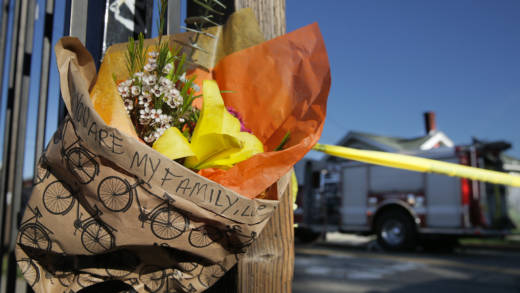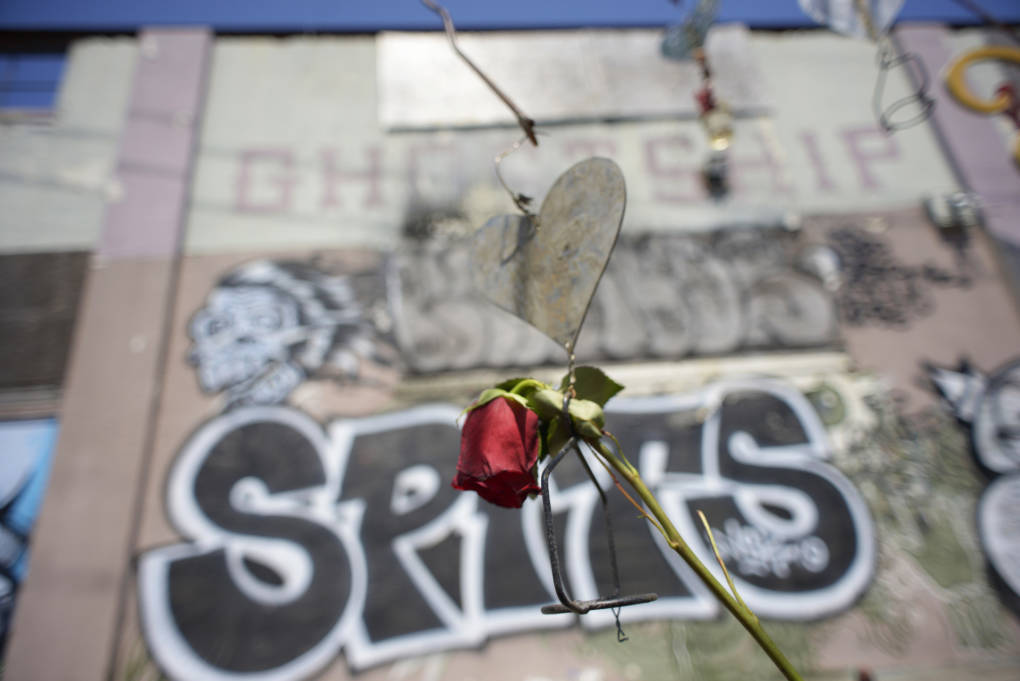[UPDATE, Dec. 14: The Ghost Ship TV series is off. In a Twitter thread explaining the decision, Ayelet Waldman has announced that “At this time… we will not be proceeding, and will do our part to leave the families and survivors to their grief and their loss, in the fervent hope that someday they find not just comfort but also a measure of justice.”]
On Dec. 10, Berkeley husband-wife author team Michael Chabon and Ayelet Waldman announced plans for a TV series about the Ghost Ship fire as part of a multi-year production deal they recently inked with CBS Television Studios.
Waldman told KQED in an email that the Ghost Ship project hasn’t yet been pitched or sold; she declined an in-person or phone interview, adding that the show is in early stages of development. She wrote that her children knew some of the fire victims, and that she envisions the show as “an indictment of the power and money that is destroying our communities, but also as a story about loss.”
Nonetheless, the news of a possible TV drama about the tragedy, which claimed 36 lives at an underground electronic music party in 2016, angered many of the victims’ loved ones still reeling from trauma and grappling with evictions of unpermitted artist warehouses that followed the tragedy. (In 2017, NBC drew ire for making an episode of Chicago Fire based on Ghost Ship.)
“If you’re even thinking of making some type of TV show or something to profit off of this, before the words even come out of your mouth, you should have backing by the families in some capacity,” says Oakland resident Mark Dias. Two of his friends and coworkers, Em Bohlka and Donna Kellogg, were among the victims.
Just to clarify: The Ghost Ship project will be adapted by journalist Elizabeth Weil, based on her own reporting. @ayeletw and I are producing it, under the terms of an overall agreement with CBS Studios that is not for any one story or project in particular.
— Michael Chabon (@michaelchabon) December 11, 2019
Dias was disturbed to learn, per Chabon’s tweet responding to criticism from 48 Hills editor Marke Bieschke, that the show will be based on New York Times Magazine writer Elizabeth Weil’s reporting. Weil’s only coverage of the fire was a sympathetic profile of Max Harris, the defendant who was recently acquitted of 36 counts of manslaughter in a criminal trial. The story painted Harris as a pacifist who unwittingly found himself ensnared in the criminal justice system, and did not focus on the victims or survivors.



